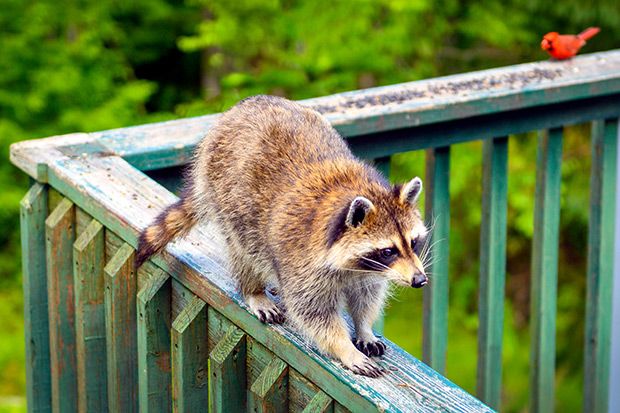Omaha veterinarian identifies rare rabies strain in kitten
Dr. Sharon Mix, medical director at VCA Animal Medical Center of Omaha, Nebraska, was in for an unpleasant surprise when she examined a stray kitten. The feral kitten, found in Douglas County, tested positive for a variant of rabies carried by raccoons that hadn’t been detected in the state before.
“He was young and his body temperature was low,” she said. The kitten was able to eat on his own on the first day but not on the second. He died on the third day.
“Usually kittens will improve with supportive care, but he did not,” Dr. Mix said. “It is common to test for rabies in an animal that passes away, he was exhibiting neurologic signs, and is too young to have received the vaccine.”
Once the test came back positive, the rabies diagnostic laboratory contacted the state health department and informed the four veterinary staff members and six other people they may have been exposed so they could complete treatment for possible rabies infection.
The results were also tested at the Centers for Disease Control and Prevention (CDC) and confirmed.
Dr. Mix said her colleagues and other veterinarians “are trained professionals and I am confident that they would have submitted this kitten for testing just as I did.”
However, “I did not think that rabies was probable,” Dr. Mix said. “Young kittens can die from many other more common illnesses.”
Douglas County Health Department officials have since deployed a team of state and federal officials to trap, test, and vaccinate about 1,000 raccoons and other wildlife in the area. In addition to the Nebraska Department of Health and Human Services (DHHS), representatives from the CDC and the U.S. Department of Agriculture (USDA) are involved in the investigation. The Nebraska Humane Society is helping with the collection of dead animals that will be used for testing.
Local concern is heightened because raccoons are common in Nebraska, and they often interact with domestic animals and pets. Traps were set up in private yards as well as public and park areas. If raccoons showed no signs of problems, they were vaccinated and released.
The CDC and USDA teams spent several weeks in the field, and surveillance will be ongoing for some time beyond that.
“At this time the collection and testing of animals found dead or showing potential signs of rabies continues. Due to the seasonal change and reduced wildlife activity, this may be a slow process that runs into February,” said Phillip Rooney, resource specialist and spokesperson for the Douglas County Health Department
As of early January, Douglas County Health Department and USDA’s Fish and Wildlife Services have produced no alarming findings, and no new rabies cases have been found. An oral rabies vaccine plan was executed in a 62-square-mile area of Douglas County, with around 18,000 vaccine packets distributed by ground baiting teams in the target area.
The county asks that people call the Nebraska Humane Society at 402-444-7800 (ext. 1) if they see a domestic or wild animal acting strangely and they also ask that people make sure their pet vaccines are current.
While Dr. Mix isn’t sure she’s seen an increase in clients seeking the vaccine, people have heard the reports and mention it when they are in for their pet’s vaccines. Her advice for pet owners is to follow their veterinarian's advice regarding vaccinating pets.
The AVMA offers many resources for veterinary professionals and clients on the topic of rabies, including downloadable brochures, posters, infographics and videos. Access the toolkit on the AVMA website.


